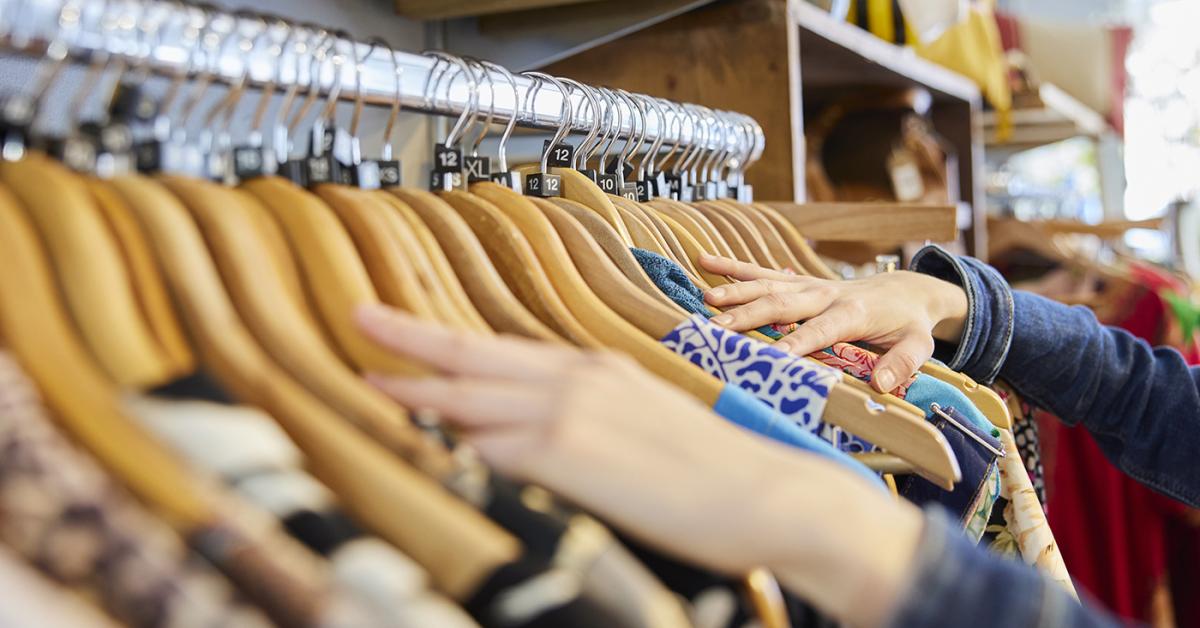WASHINGTON — Congresswoman Chellie Pingree (D-Maine), ranking member of the House Appropriations Interior and Environment Subcommittee, alongside Reps. Marie Gluesenkamp Perez (D-Wash.) and Sydney Kamlager-Dove (D-Calif.), recently announced the first-ever Congressional Slow Fashion Caucus to curb fast fashion pollution through climate-smart policies.
The members were joined by sustainable fashion industry leaders and stakeholders, including Patagonia, thredUp, the Garment Worker Center, and more for the launch event and press conference on Capitol Hill.
“For too long, the so-called ‘fast fashion’ industry has been given free range to pollute our planet, exploit workers, and shortchange consumers,” says Pingree, founder and chair of the Slow Fashion Caucus. “In fact, textile waste is one of the fastest-growing waste streams in the United States and is responsible for more carbon emissions than all international flights and maritime shipping combined. The launch of our Slow Fashion Caucus marks a new era in the fight against climate change and sends a clear message that Congress will not stand by as the harmful fast fashion industry flies under the radar to destroy our planet.”
Pingree goes on to say there are alternatives to this course of action.
“As lawmakers, we can create incentives for the apparel industry and consumers to reduce natural resource consumption and engage in reusing, repairing, rewearing and recycling textiles,” she says. “I am eager to get to work and thankful for the widespread support of sustainable style advocates, industry leaders, and, of course, my fellow Members of Congress who are joining me in this new effort to rein in fast fashion pollution. This is just the beginning!”
“High-quality American-made clothing isn’t just inherently fashionable – it’s a core part of building wealth in the middle class,” says Gluesenkamp Perez. “When I have to replace work boots every few months, rather than a quality pair that can last for years, my family loses out. The purest form of environmentalism is to use less and be a good steward of your stuff – rather than buying new clothing that’s designed to be disposable.”
Gluesenkamp Perez notes that lower-quality clothing contains other drawbacks, as well.
“These items can contain toxic chemicals and PFAS, and they’re predominantly made from synthetic fabrics that shed microplastics, unlike natural fibers,” she says. “Instead of putting our kids in pajamas with chemical flame retardants, we should be looking to naturally resistant alternatives like wool. I look forward to working with the Slow Fashion Caucus to bring manufacturing jobs home and support a cultural shift toward durable, safe clothing for working families.”
“Los Angeles is home to the dreamers, innovators, and risk-takers of the fashion world, and as such, we have long been leaders in setting sustainable fashion trends to promote fair labor practices and reduce fashion’s climate footprint,” says Congresswoman Kamlager-Dove. “California has been a pioneer in tackling this issue at the state level, which is why I am thrilled to see the effort to promote sustainable fashion coming to the Halls of Congress. I am proud to be a founding member of the Slow Fashion Caucus and look forward to working alongside my colleagues to advance policies that support an ethical, sustainable, and climate-smart future.”
Founding members of the Congressional Slow Fashion Caucus include Representatives Chellie Pingree (D-Maine, Chair), Marie Gluesenkamp Perez (D-Wash.), Grace Meng (D-N.Y.), Julia Brownley (D-Calif.), Sydney Kamlager-Dove (D-Calif.), Jerrold Nadler (D-N.Y.), Jan Schakowsky (D-Ill.), Earl Blumenauer (D-Ore.), Kathy Castor (D-Fla.), Jared Huffman (D-Calif.), and Jill Tokuda (D-Hawaii).
The Slow Fashion Caucus has already garnered widespread support, the announcement says, including from American Circular Textiles, the Garment Worker Center, the Climate Reality Project, Patagonia, ThredUp, fashion designer and slow fashion influencer Kelly Dempsey, and more.
“Consumers demand — and companies should deliver — products that are more durable, multifunctional and, crucially, socially and environmentally responsible,” says Rebecca Goodstein, senior retail environmental activism manager at Patagonia. “Government has a role, too. We need a national revolution around quality, backed by policies and legislation that prioritize the most sustainable raw materials and best manufacturing practices. That’s why my colleagues and I are excited about the launch of this caucus and its goals to strengthen public awareness and encourage textile sustainability.”
“There is a dire need for public policy to help us accelerate the transition to a more sustainable future, just like it has for energy and vehicles. The launch of the Slow Fashion Caucus gives us a powerful new platform to forge ahead,” says Alon Rotem, Chief Legal Officer of ThredUp. “We look forward to working with like-minded organizations and policymakers to advance the fashion policy agenda, change incentive structures to benefit our shared planet and resources, and ultimately create a more sustainable fashion future for generations to come.”
Have a question or comment? E-mail our editor Dave Davis at [email protected].







